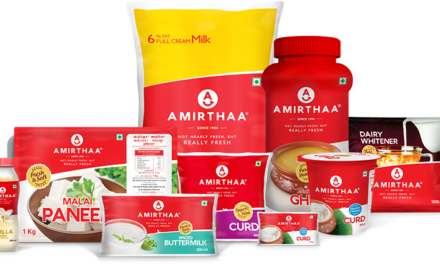Private labels are rapidly gaining traction in India’s packaged food market, driven by changing consumer preferences, the rise of modern retail, and the expansion of e-commerce platforms. Private labels, which are products sold under a retailer’s brand name, are becoming increasingly popular as they offer affordable, high-quality alternatives to established national brands. Retail giants like Reliance Retail, DMart, Big Bazaar, and e-commerce platforms such as Amazon, Flipkart, and BigBasket are leading this trend by launching their own packaged food products across categories such as snacks, staples, ready-to-eat meals, beverages, and organic foods.
The growth of private labels is being fueled by their competitive pricing and value-for-money proposition, which appeal to price-conscious Indian consumers. These products are typically 15-30% cheaper than their branded counterparts while maintaining similar quality standards, making them particularly attractive in the price-sensitive Indian market. In addition, rising inflation and increasing awareness of budget-friendly options have encouraged consumers to shift toward private-label products.
Private labels are also capitalizing on the growing demand for health-focused and premium packaged foods, introducing products like organic pulses, multigrain snacks, gluten-free foods, and fortified staples. By leveraging consumer insights and data analytics, retailers can quickly identify trends and develop products tailored to local tastes and regional preferences, offering an edge over traditional brands.
The pandemic accelerated the acceptance of private labels as consumers turned to modern trade outlets and online platforms for essentials. Retailers seized the opportunity to expand their product portfolios, offering packaged goods that emphasized hygiene, quality, and affordability. Moreover, private labels benefit from strong supply chain control, enabling them to deliver consistent quality while keeping costs low.
The growth of e-commerce platforms has been instrumental in driving the visibility and accessibility of private-label packaged foods. Platforms like BigBasket and Amazon Pantry prominently feature their in-house brands, providing consumers with a wider choice of affordable alternatives while ensuring product availability across geographies. This model allows for higher margins for retailers while building stronger brand loyalty among customers.
As competition intensifies, private labels are focusing on innovative packaging, sustainability, and product differentiation to strengthen their market presence. Investments in branding and marketing campaigns are helping shift consumer perceptions, positioning private labels not merely as “generic alternatives” but as credible, high-quality brands in their own right.
The increasing acceptance of private labels reflects a broader shift in consumer behavior, with Indian shoppers becoming more open to experimenting and prioritizing value over brand loyalty. With modern retail and e-commerce expected to grow further, private labels are poised to play a pivotal role in reshaping India’s packaged food market, offering affordable, high-quality, and innovative products to meet the evolving needs of consumers.









